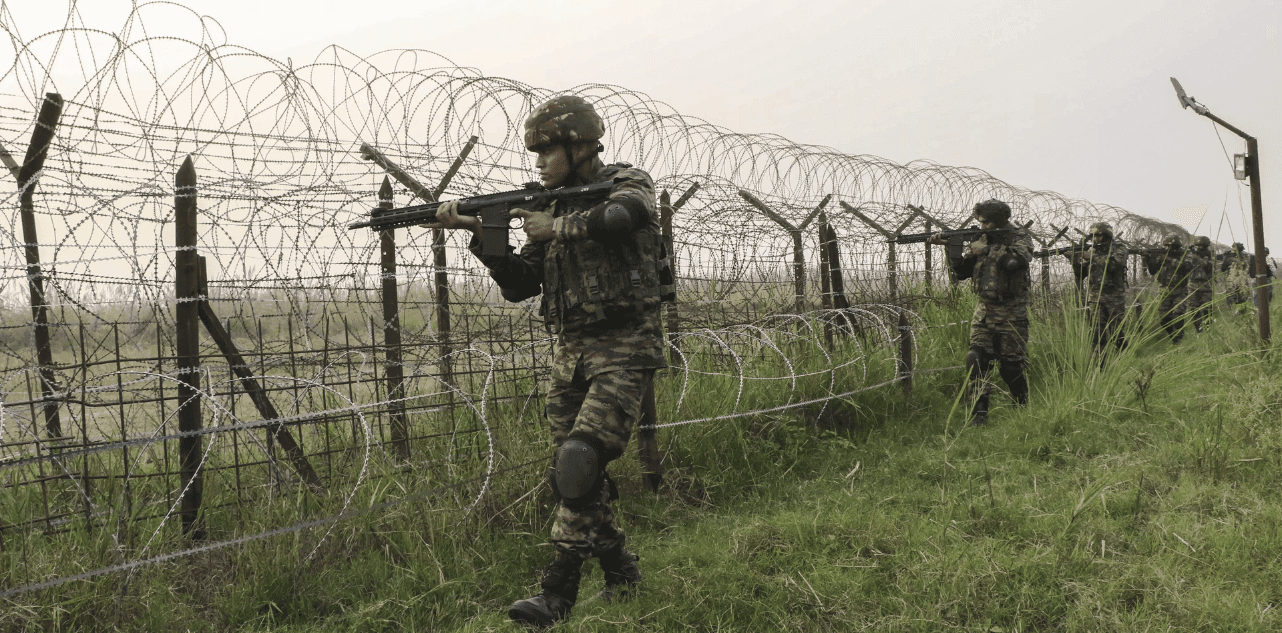Monday 16 February 2026
Tensions Escalate Along LoC: India Retaliates as Pakistan's Firing Threatens Border Stability amid Tension after Pahalgam Attack
Share

During the early hours of Thursday night, Indian Army personnel launched a counter-move after Pakistani forces initiated aggressive fire in the Line of Control region of Jammu and Kashmir, according to a military source. The Indian security forces are said to have “effectively responded” to the fire from the Pakistan Army, with no casualties reported on either side.
The exchange of fire happened after a series of small arms exchanges along the LoC by Pakistan, military officials said. Firing was replied to promptly and efficiently with no loss of human life in the area. The small skirmish followsan earlier terror attack this week when 26 persons, including a Nepali national, were killed in the tourist resort town of Pahalgam, raising tensions between the two border nations.
The recent firefight is only one episode in the ongoing war between Pakistan and India, which has been fueled by a deadly terrorist attack that left the region in suspense. As a reaction to what India has termed "cross-border links" to the Pahalgam attack, India has levied a series of severe actions against Pakistan, including the expulsion of Pakistani military attaches, suspension of the Indus Water Treaty, and closure of the Attari land-transit post.
On Thursday, the Indian government also formally notified Pakistan that the suspension of the Indus Waters Treaty, signed in 1960, is now in effect indefinitely. The decision was communicated in a letter from the Union Ministry of Water Resources to Pakistan’s Ministry of Water Resources, in which India condemned Pakistan’s continuous failure to respect the treaty’s provisions, given the rising threat of cross-border terrorism.
“The obligation to honour a treaty in good faith is fundamental to a treaty. However, what we have seen instead is sustained cross-border terrorism by Pakistan targeting the Indian Union Territory of Jammu and Kashmir,” the letter said, referring to Pakistan's action in perpetuating hostilities which directly affect India's security interests. The letter also specified that Pakistan's action was "in breach of the Treaty.
India explicitly indicated that it was no longer in a position to continue paying obeisance to the deal, especially as seen in terms of the “fundamental changes in the circumstances” that have since occurred following the signing of the Treaty. Among these changed circumstances, India pointed towards different population demographics, the necessity to expedite the generation of clean energy, and changes in the underlying presumptions that the water-sharing agreement rested upon. The Ministry of Water Resources also condemned the refusal of Pakistan to enter into serious negotiations, as contemplated under the treaty, and said, “Pakistan has refused to respond to India's request to enter into negotiations as envisaged under the Treaty and is thus in breach of the Treaty.”
The suspension decision was taken not long after a top-level meeting of the Cabinet Committee of Security, headed by Prime Minister Narendra Modi. The Prime Minister had promised that India would "identify, track and punish" those who orchestrated the Pahalgam terror attack, and indirectly, those abetting terrorism. India has already shown firmness towards Pakistan by imposing sanctions in an attempt to halt the terror operations from the other side of the border.
With tensions escalating, both military and diplomatic actions are bound to increase. The collapse of the Indus Waters Treaty and the uncertain environment on the LoC signal a turning point in already tenuous relations between the two countries.
Newsletter
Stay up to date with all the latest News that affects you in politics, finance and more.